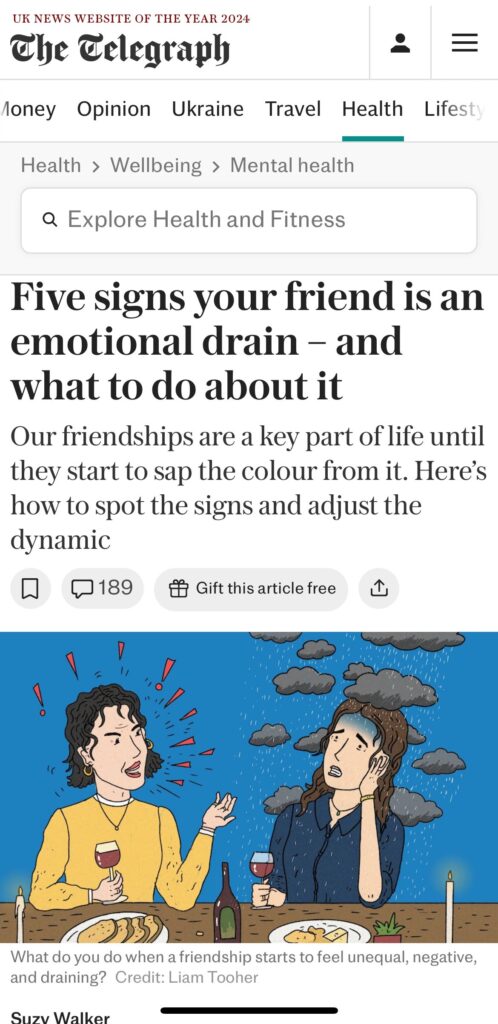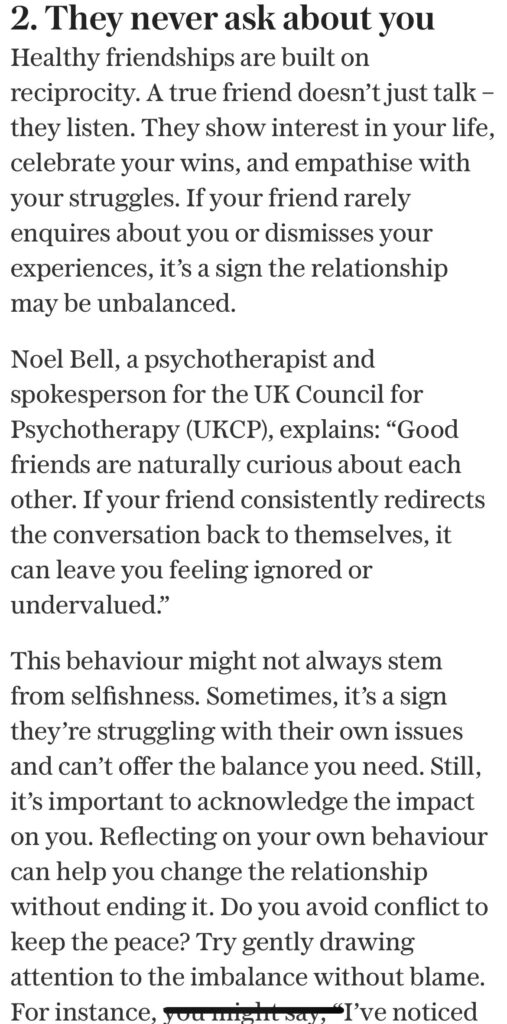Here’s how to spot when your friend has become an emotional drain.
The conversation tends to increasingly become all about them
No matter what success you may have had, such as a new job, a new relationship, or a new house move, for example, they will twist your news and only see the perceived negative impacts for them. So, if you’ve started a new relationship, they will only envisage less time with you and, therefore, cannot or will not be happy for you, and won’t celebrate in your success, as a good friend would.
They are overly demanding
There are often incessant demands to chat, meet up or to do social things together. There is usually little awareness of how busy your life is. When you can’t meet them, or to have that requested video call, they will sulk and then ignore you. This form of passive aggression can take many forms, and it might last for long periods of time, until they feel that they have made their point. It can feel draining when you are being ignored, as your attempts at contacting them are ignored. It is punishing behaviour and you can feel confused about your friendship.
Jealous of your new connections
Good friends, who are happy for you when you make new connections, are different to those people in your life who drain your emotional energy. You can be yourself with good friends, as they should be pleased to hear about your excitements, your successes and your new social connections. They won’t allow their emotional insecurity to cloud how they feel about your new social connections.
How to deal with a friend who has become an emotional drain
It is important to be aware of your personal boundaries when dealing with people who can be emotionally draining. Setting boundaries could involve listing your red flags and dealbreakers for interacting with all people. What makes you feel uncomfortable, what type of behaviours compromise your value system and what would need to occur for you to walk away? Setting these boundaries is one thing, then the real acid test of maintaining good emotional well-being and positive self-esteem is to enforce them. Enforcing boundaries means saying what needs to be said and meaning what you say. This is the opposite of passive aggression.
If someone in your life is monopolising a conversation, perhaps you could address this by telling them how you feel. If people are worth having in your life they will hear what you have to say and will amend their behaviour accordingly.
You could be open about how you feel if someone is sulking and giving you silent treatment. The passive aggressiveness of being punished in this way needs to be made conscious. Someone is not owning their hostility, thats what makes their behaviour “passive” aggressive after all, so making it conscious will help to force the issue. This way you will know where you stand. Perhaps you have done something wrong, in their eyes. But at least you then can have a conversation. If someone is not able to own their hostility and talk about it, do you really want them in your life?
I made these points to Suzy Walker of the Daily Telegraph in an article about how friends can become emotionally draining. The link contains content behind a paywall but can be read with a free registration. https://www.telegraph.co.uk/health-fitness/wellbeing/mental-health/emotional-drain-friendship/


Noel Bell is a UKCP accredited psychotherapist and can be contacted on 07852407140.